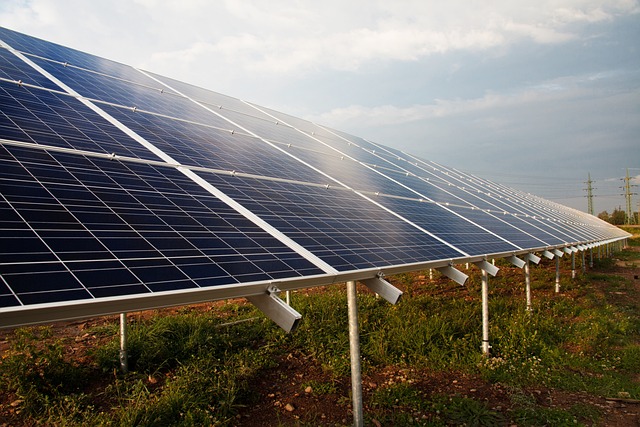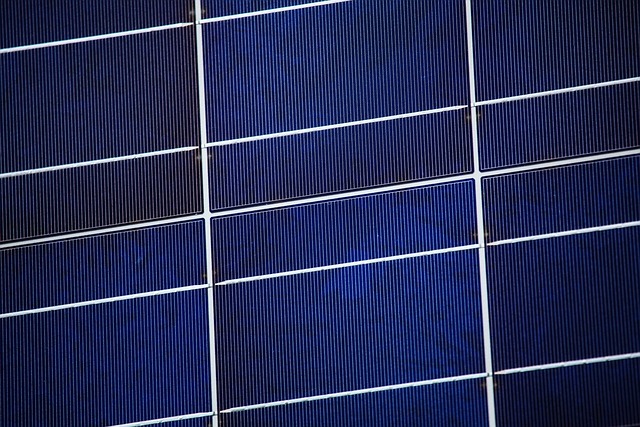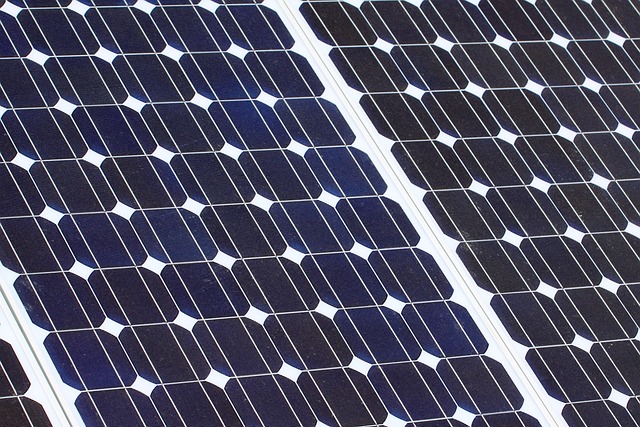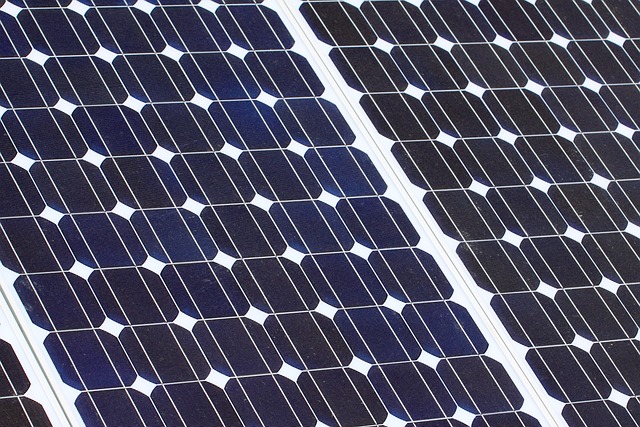So, you’re interested in renewable energy sources and want to know more about solar wind and geothermal energy? Well, you’re in the right place! In this article, we’ll dive into the world of renewable energy and compare the benefits of solar wind and geothermal energy.
Curious to know how these two sources of renewable energy stack up against each other? We’ll explore the advantages of each in detail. From their environmental impact to their cost-effectiveness, we’ll break it down for you. By the end of this article, you’ll have a clear understanding of the benefits of solar wind and geothermal energy, and be able to make an informed decision on which is the best choice for you. So, let’s get started and discover how we can harness the power of the sun, wind, and the Earth itself to create a sustainable future.
Compare Top 5 Advantages of Solar, Wind and Geothermal Energy

This image is property of pixabay.com.
Solar Energy
Definition and Overview
Solar energy is the power derived from the sun’s rays, which can be used to generate electricity or heat water. It involves the installation of solar panels, commonly known as photovoltaic (PV) systems, that capture sunlight and convert it into usable energy.
Advantages
There are several advantages to utilizing solar energy:
- Renewability: Solar energy is a renewable source, as the sun will continue to shine for billions of years. This makes it an abundant and virtually inexhaustible resource for generating electricity.
- Reduced Electricity Bills: By harnessing solar energy, you can significantly reduce your electricity bills. With a well-designed solar power system, your home or business can generate enough electricity to meet your energy needs and even surplus energy that can be sold back to the grid.
- Low Maintenance: Solar panels require minimal maintenance. Once installed, they can operate efficiently for years with little to no intervention. Regular cleaning and inspections are recommended to maintain optimal performance.
- Technology Development: Solar energy technology has been advancing rapidly in recent years. This has led to more efficient solar panels, higher energy production, and reduced costs. As technology continues to develop, the effectiveness and affordability of solar energy will only improve.
- Energy Independence: By harnessing solar energy, you can become less reliant on traditional sources of electricity, such as fossil fuels. This promotes energy independence and reduces your carbon footprint, as solar energy is clean and sustainable.
Wind Energy
Definition and Overview
Wind energy is the power derived from the movement of air. It is converted into electricity through wind turbines, which capture the kinetic energy of the wind and convert it into rotational energy.
Advantages
There are several advantages of utilizing wind energy:
- Renewability: Like solar energy, wind energy is also a renewable resource. As long as the wind keeps blowing, we can continue to generate electricity from it.
- Cost-Effectiveness: Wind energy has become increasingly cost-effective in recent years. The costs associated with wind turbine installation and maintenance have significantly reduced, making it a more affordable option for electricity generation.
- Energy Generation Potential: Wind turbines can generate significant amounts of energy, especially when installed in areas with a consistent and strong wind resource. This means that wind energy has the potential to provide a substantial portion of a region’s electricity needs.
- Job Creation: The wind energy industry has created numerous job opportunities worldwide. From manufacturing and installation to maintenance and operation, the industry requires a skilled workforce, contributing to economic growth and employment.
- No Pollution: Wind energy is a clean source of electricity. Unlike fossil fuels, wind turbines do not emit greenhouse gases or produce pollutants that contribute to air pollution or climate change. This makes wind energy a more sustainable and environmentally friendly alternative.

This image is property of pixabay.com.
Geothermal Energy
Definition and Overview
Geothermal energy is the power derived from the heat stored beneath the Earth’s surface. This heat can be utilized through geothermal power plants or geothermal heat pumps to generate electricity or provide heating and cooling for buildings.
Advantages
There are several advantages of utilizing geothermal energy:
- Constant and Reliable Supply: Geothermal energy provides a constant and reliable energy supply. Unlike solar or wind energy, it is not dependent on weather conditions, making it an ideal source of power generation.
- Reduced Greenhouse Gas Emissions: Geothermal power plants emit significantly fewer greenhouse gases compared to fossil fuel-based power plants. This helps to mitigate climate change and reduce the carbon footprint associated with electricity generation.
- Long Lifespan: Geothermal power plants and systems have a long lifespan. Once installed, they can operate reliably for decades, ensuring a stable and sustainable energy source.
- Versatility: Geothermal energy can be utilized for various purposes, including electricity generation, residential and commercial space heating, and even agricultural applications. Its versatility makes it a valuable asset in meeting different energy needs.
Comparison of Solar, Wind, and Geothermal Energy
Renewability
All three energy sources – solar, wind, and geothermal – are renewable, meaning they are continuously replenished naturally and won’t run out as long as the Earth is alive.
Availability
While solar energy is available in abundance, its availability may vary based on geographical location and weather conditions. Wind energy is also widely available, but it requires suitable wind conditions for optimal output. Geothermal energy availability depends on the proximity to geothermal reservoirs, which can be limited to specific regions.
Environmental Impact
Solar and wind energy have minimal environmental impacts, producing no greenhouse gas emissions or air pollution during the energy generation process. Geothermal energy has low emissions but may release trace amounts of gases and minerals from the underground reservoirs.
Cost
Solar and wind energy costs have been declining significantly in recent years, making them more economically viable. The initial installation cost of geothermal energy systems is relatively high, but the long-term operational cost can be lower than solar and wind.
Efficiency
Solar panels have a different efficiency rating, with the average being around 15-20%. Wind turbines can achieve efficiency rates of 30-50% depending on factors like wind speed and turbine design. Geothermal power plants have high average efficiencies, typically ranging from 10-23%, depending on the technology used.

This image is property of pixabay.com.
Conclusion
Solar, wind, and geothermal energy each offer unique advantages and contribute to a more sustainable and clean energy future. Solar energy provides reduced electricity bills, low maintenance, technology development, and energy independence. Wind energy offers cost-effectiveness, energy generation potential, job creation, and no pollution. Geothermal energy provides a constant and reliable supply, reduced greenhouse gas emissions, long lifespan, and versatility. Understanding the advantages of these renewable energy sources can help individuals and businesses make informed decisions about their energy needs and contribute to a greener planet.
So, you’re interested in renewable energy sources and want to know more about solar wind and geothermal energy? Well, you’re in the right place! In this article, we’ll dive into the world of renewable energy and compare the benefits of solar wind and geothermal energy.
Curious to know how these two sources of renewable energy stack up against each other? We’ll explore the advantages of each in detail. From their environmental impact to their cost-effectiveness, we’ll break it down for you. By the end of this article, you’ll have a clear understanding of the benefits of solar wind and geothermal energy, and be able to make an informed decision on which is the best choice for you. So, let’s get started and discover how we can harness the power of the sun, wind, and the Earth itself to create a sustainable future.
Compare Top 5 Advantages of Solar, Wind and Geothermal Energy

This image is property of pixabay.com.
Solar Energy
Definition and Overview
Solar energy is the power derived from the sun’s rays, which can be used to generate electricity or heat water. It involves the installation of solar panels, commonly known as photovoltaic (PV) systems, that capture sunlight and convert it into usable energy.
Advantages
There are several advantages to utilizing solar energy:
-
Renewability: Solar energy is a renewable source, as the sun will continue to shine for billions of years. This makes it an abundant and virtually inexhaustible resource for generating electricity.
-
Reduced Electricity Bills: By harnessing solar energy, you can significantly reduce your electricity bills. With a well-designed solar power system, your home or business can generate enough electricity to meet your energy needs and even surplus energy that can be sold back to the grid.
-
Low Maintenance: Solar panels require minimal maintenance. Once installed, they can operate efficiently for years with little to no intervention. Regular cleaning and inspections are recommended to maintain optimal performance.
-
Technology Development: Solar energy technology has been advancing rapidly in recent years. This has led to more efficient solar panels, higher energy production, and reduced costs. As technology continues to develop, the effectiveness and affordability of solar energy will only improve.
-
Energy Independence: By harnessing solar energy, you can become less reliant on traditional sources of electricity, such as fossil fuels. This promotes energy independence and reduces your carbon footprint, as solar energy is clean and sustainable.
Wind Energy
Definition and Overview
Wind energy is the power derived from the movement of air. It is converted into electricity through wind turbines, which capture the kinetic energy of the wind and convert it into rotational energy.
Advantages
There are several advantages of utilizing wind energy:
-
Renewability: Like solar energy, wind energy is also a renewable resource. As long as the wind keeps blowing, we can continue to generate electricity from it.
-
Cost-Effectiveness: Wind energy has become increasingly cost-effective in recent years. The costs associated with wind turbine installation and maintenance have significantly reduced, making it a more affordable option for electricity generation.
-
Energy Generation Potential: Wind turbines can generate significant amounts of energy, especially when installed in areas with a consistent and strong wind resource. This means that wind energy has the potential to provide a substantial portion of a region’s electricity needs.
-
Job Creation: The wind energy industry has created numerous job opportunities worldwide. From manufacturing and installation to maintenance and operation, the industry requires a skilled workforce, contributing to economic growth and employment.
-
No Pollution: Wind energy is a clean source of electricity. Unlike fossil fuels, wind turbines do not emit greenhouse gases or produce pollutants that contribute to air pollution or climate change. This makes wind energy a more sustainable and environmentally friendly alternative.

This image is property of pixabay.com.
Geothermal Energy
Definition and Overview
Geothermal energy is the power derived from the heat stored beneath the Earth’s surface. This heat can be utilized through geothermal power plants or geothermal heat pumps to generate electricity or provide heating and cooling for buildings.
Advantages
There are several advantages of utilizing geothermal energy:
-
Constant and Reliable Supply: Geothermal energy provides a constant and reliable energy supply. Unlike solar or wind energy, it is not dependent on weather conditions, making it an ideal source of power generation.
-
Reduced Greenhouse Gas Emissions: Geothermal power plants emit significantly fewer greenhouse gases compared to fossil fuel-based power plants. This helps to mitigate climate change and reduce the carbon footprint associated with electricity generation.
-
Long Lifespan: Geothermal power plants and systems have a long lifespan. Once installed, they can operate reliably for decades, ensuring a stable and sustainable energy source.
-
Versatility: Geothermal energy can be utilized for various purposes, including electricity generation, residential and commercial space heating, and even agricultural applications. Its versatility makes it a valuable asset in meeting different energy needs.
Comparison of Solar, Wind, and Geothermal Energy
Renewability
All three energy sources – solar, wind, and geothermal – are renewable, meaning they are continuously replenished naturally and won’t run out as long as the Earth is alive.
Availability
While solar energy is available in abundance, its availability may vary based on geographical location and weather conditions. Wind energy is also widely available, but it requires suitable wind conditions for optimal output. Geothermal energy availability depends on the proximity to geothermal reservoirs, which can be limited to specific regions.
Environmental Impact
Solar and wind energy have minimal environmental impacts, producing no greenhouse gas emissions or air pollution during the energy generation process. Geothermal energy has low emissions but may release trace amounts of gases and minerals from the underground reservoirs.
Cost
Solar and wind energy costs have been declining significantly in recent years, making them more economically viable. The initial installation cost of geothermal energy systems is relatively high, but the long-term operational cost can be lower than solar and wind.
Efficiency
Solar panels have a different efficiency rating, with the average being around 15-20%. Wind turbines can achieve efficiency rates of 30-50% depending on factors like wind speed and turbine design. Geothermal power plants have high average efficiencies, typically ranging from 10-23%, depending on the technology used.

This image is property of pixabay.com.
Conclusion
Solar, wind, and geothermal energy each offer unique advantages and contribute to a more sustainable and clean energy future. Solar energy provides reduced electricity bills, low maintenance, technology development, and energy independence. Wind energy offers cost-effectiveness, energy generation potential, job creation, and no pollution. Geothermal energy provides a constant and reliable supply, reduced greenhouse gas emissions, long lifespan, and versatility. Understanding the advantages of these renewable energy sources can help individuals and businesses make informed decisions about their energy needs and contribute to a greener planet.
Renewable Energy Resources
Renewable Energy at EPA
EPA Clean Energy Programs
Renewable Energy by California Energy Commission



